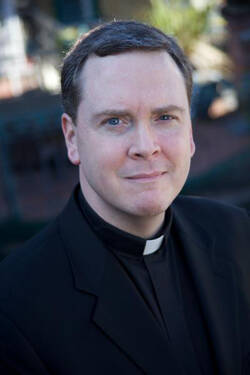We’re a long way from the world of Charles Carroll, the wealthy landowner (and slave owner, sad to say) who has the distinction of being the only Catholic and the longest-lived and last surviving signatory to the Declaration of Independence. A member of the Continental Congress, the predecessor of the present 114th Congress, he was also the brother of John Carroll, who was a Jesuit before he became an archbishop, like Pope Francis, and became the founder of Georgetown University.
The world we know now is far removed from that of the brothers Carroll, a time when anti-Catholicism was a national pastime. Most of our founding fathers, faithful sons of reformed Protestantism that they were, did not care for Roman Catholics. John Adams, the first president to live in the White House, was no different. He had a particular dislike of Jesuits and once told his friend Thomas Jefferson: “If ever there was a body of men who merited eternal damnation on earth and in hell it is this Society of Loyola’s.” So what would he think, not only of a pope visiting the White House, but of a pope who also happens to be a Jesuit? Hard to know, of course, but we can say this at least: It says something great about the country that Mr. Adams helped to found that over two centuries we have enlarged our understanding of its founding traditions and have overcome Mr. Adams’s sectarian prejudice.
A mere 50 years ago we had a vigorous debate in this country about whether a Catholic could or should be elected president. Now just this month the Pope of the Holy See, as he was introduced by the sergeant at arms in the House chamber, addressed a joint session of the U.S Congress. In many ways, the pope’s address marked the complete emergence of Catholic America from the social and political ghetto to which it was relegated for much of American history. Unity in diversity, e pluribus unum, is the American story. “I think it’s sort of the history of the journey of this country,” Vice President Joseph R. Biden Jr. says during the interview with him in this issue. “If you think about it, it’s always been in the direction of inclusiveness, always in the direction of acceptance, always been in the direction of expanding rights and recognizing differences.... I think it’s what makes America the unique country in the world.”
The present U.S. Congress is 30 percent Catholic. In recent weeks, we have heard from prominent American Catholics like Stephen Colbert as they’ve talked about how their faith shapes their lives and careers. There is a good chance that the next president will be a Catholic. Will the pope’s address and his visit to the U.S. encourage Catholic elected officials and even ordinary citizens to speak more freely about their faith, whether it’s on “Nightline,” “The Late Show” or at a New England town meeting or a Starbucks in Sacramento? How do American Catholics continue to maneuver between their faith and their public life in light of what the pope has said? Whether it is climate change, abortion, the death penalty or war and peace, most Americans have some difference of opinion with Francis and the social vision he champions. Those are just a few of the questions we are left with as the pope returns to Rome.
America Media will continue to explore those questions and more in the weeks and months ahead. In the meantime, I wish to extend my thanks to you, our subscribers and audience. Your support makes it all possible. The week of the pope’s visit was an exceptional moment in the life of this media ministry and, more important, for the church in this country. You should know that the staff worked round the clock for days, covering every angle. I am grateful for their dedication and skill. You can revisit the fruits of those labors at papalvisit.americamedia.org.








